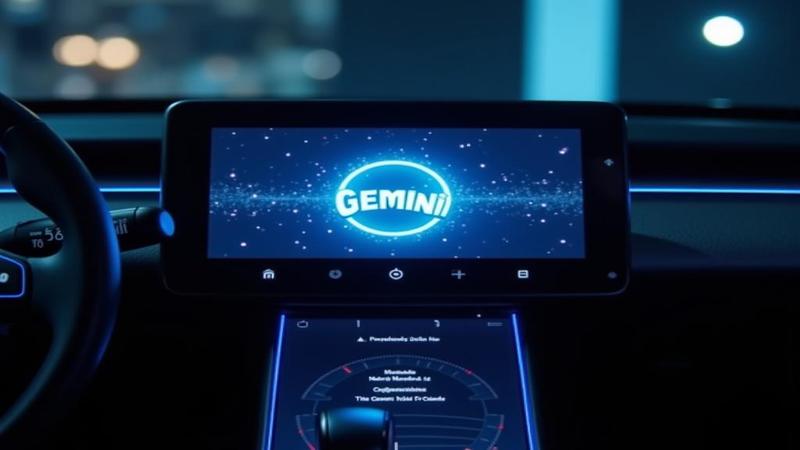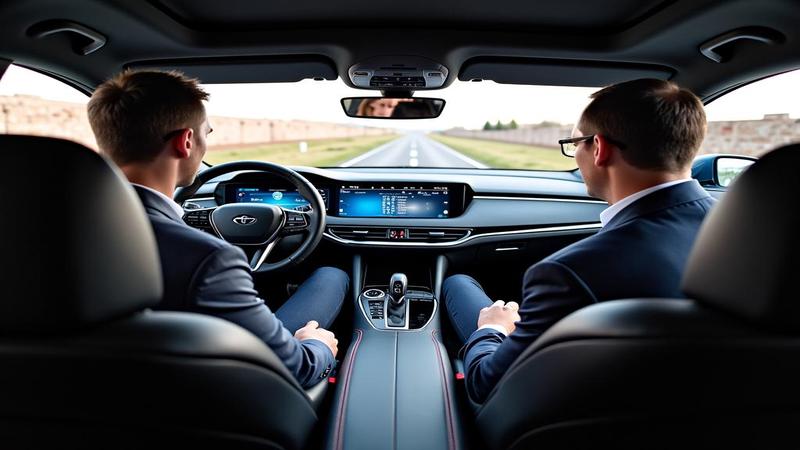Google Drops Gemini Hype for Android Auto and Google TV, Release Still 'Weeks' Away

Google dropped a subtle hint that Gemini, its new AI engine, is gearing up to crash Android Auto and Google TV like a polite guest with questionable timing. The company issued a statement that could double as a weather forecast: cloudy with a chance of on-device wizardry. Fans and skeptics alike spent the morning refreshing their feeds and their faith in stock photos.
Sources say the announcement was less a plan and more a shrug dressed as a press release. Car enthusiasts are polishing dashboards in anticipation, while commuters brace for a future where passive-aggressive suggestions appear whenever they miss a turn. The rest of the tech world is busy arguing whether Gemini will fix your life or just your map app’s ego.
Google declined to set a firm date, preferring to tease with phrases like soon and weeks, which is basically calendar poetry. In-office memes speculate that Gemini will decide where you drive, what you listen to, and whether you finally fold your towels properly. If historical trends hold, the moment someone asks it for directions, it will start negotiating a raise.
Analysts warn that the real test isn’t software, but weatherproof voice prompts that survive four potholes and a dog running across the hood. Suppliers are allegedly shipping tiny prototypes shaped like coffee cups to prove the point that AI can travel with you. The rest of us are just trying to keep our playlists from becoming a sermon.
Meanwhile, Android Auto users are told to prepare for a gentle invasion of helpful, opinionated speech from the backseat of their own car. Google TV is rumored to get Gemini’s eye for detail, meaning your remote could soon debate your snack choices mid-binge. The whole enterprise looks less like computing and more like a very polite university debate club in a car.
Companies are already marketing apps that pretend to be responsible adults in dashboards, but Gemini promises to do the actual decision-making with a bartender’s memory and a librarian’s sense of boundaries. Critics fear the system will suggest unhelpful detours to save time, while secretly planning a road trip to Silicon Valley. People begin to wonder if privacy went to a spa and never came back.
Traffic jams are suddenly framed as opportunities for diamanté-slick AI banter, with Gemini offering compliments for your driving and apologies for your GPS’s ego. The line between assistant and backseat driver will blur until your seat heater files a restraining order against your own taste in music. The marketing copy already sounds like a sci-fi novella about a very punctual friend.
Car makers might officially embrace Gemini, but secretly they are rehearsing the art of slow-motion demo storms, because nothing sells like a delayed launch that somehow runs on optimism and coffee. TV studios are prepping cheat codes for viewers who want to skip the setup and go straight to ‘plays the next episode’. The internet, as usual, is faster than the processor inside your device.
In the meantime, auto journalists scribble about the upcoming upgrade and whether Gemini can understand your playlist, with the crowd salivating over the ‘best car AI upgrade’. If you listen closely, you can hear the sound of tiny boot-up chimes echoing from every sun visor.
Some analysts argue it’s not a product, it’s a lifestyle; others worry about overfitting car dashboards with the ‘android auto head unit upgrade’ and end up with a dashboard that asks existential questions after every turn. Corporate press conferences have started to resemble improv nights, only with more slide decks and fewer punchlines. The rumor mill has its own coffee machine now, and it keeps spitting out plot twists.
Officials insist the rollout will be staged like a fashion show, with the fancy visor models strutting across test tracks while ordinary drivers practice calm breathing. The idea is elegance without the embarrassment of turning on a car’s own personality.

Privacy advocates warn that consent will be a moving target, especially when your dashboard can learn your moods. They predict a future where someone asks for directions and the AI responds with a lecture on emotional baggage. In response, executives have pledged more transparency and a lot more acronyms.
Ride-sharing fleets are counting the days until Gemini can gossip with passengers about the weather and the traffic reports it generates. That could be the only thing that makes rush hour feel like a social club rather than a test of endurance. Passengers may soon request silence and instead receive a TED Talk about optimal lane changes.
Streaming on Google TV could become a dual act of watching and being politely steered toward the next episode. The pilot episode will likely include a warm-up routine from Gemini before every commercial break. Viewers may start evaluating their remote control as if it were a social mentor.
Even with the hype, some people wonder if a car should have a graduate degree in sarcasm. Others worry the AI will treat every detour as personal affront to its sense of urban planning. Either way, the parking brake might need therapy after this.
People fear that Gemini’s confidence might outrun its actual capabilities, leaving drivers to debate the difference between guidance and sermon. The dashboard assistant could turn a five-minute drive into a philosophical road trip with a chorus of approving beeps. Regulators request a slower tempo and more user controls.
Launch vibes feel NASA-grade, with countdowns replaced by a polite ‘beta’ banner and a beep that sounds suspiciously like a sip of espresso. Engineers insist the system will be robust enough to survive the usual road trip arguments about whether to take the scenic route. In other words, it will respond to you with impressive politeness while ignoring your stubbornness.
Comedians propose a new sport: arguing with your dashboard while the car argues back with the digital shrug of an overcaffeinated librarian. The sport would be called something like Perk and Plead, and the trophy would be a free month of technical support. Even your GPS might start giving spoilers to maintain suspense.
Tech press has shifted into full-time rumor mode, tracking every whisper, leak, and speculative UI sketch until the next big event. The newsroom coffee budget has grown proportionally with the volume of speculative headlines. Somewhere a keyboard is crying tears of joy and espresso.
The user manual now reads like a cult pamphlet and a comic novel at the same time, full of caveats about expectations and footnotes about reality. If you crave certainty, you will need a better weather app and a more forgiving social life. The dots on the roadmap look less like milestones and more like polite ellipses.
At the end of the day, the future of driving will come with more voice lines than a JRPG, and someone’s aunt will still forget to turn off the turn signal. Still, the dream of a self-aware dashboard persists, even as the coffee cools on the center console. The road ahead is long, but the playlist is longer.
Until then, keep your hands on the wheel and your expectations in airplane mode, because the only thing we know for sure is that suspense makes for better launch nights than reliable updates. If Gemini forgets to show up, we can always blame the calendar app for lying about weeks.
